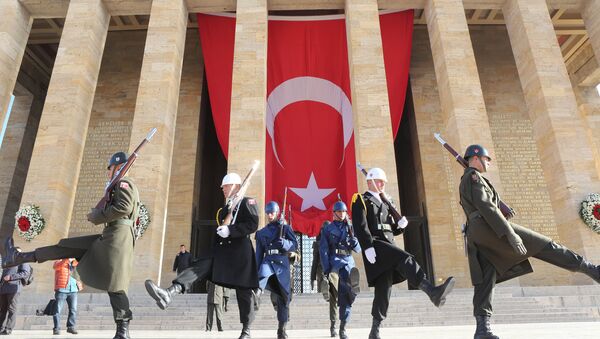As part of the deal the EU would speed up Turkey's accession into the EU and that the EU would allow Turkish citizens visa-free access to Europe by the end of June 2016. That deadline is now passing and unlikely to be met until at least October.
Turkey also had to fulfil a number of other commitments, chiefly on human rights, documentation, security and refugee humanitarian needs. But the stumbling block has been over Turkey's refusal to tighten anti-terror laws that critics say have been used to silence journalists and media organizations. Moreover, Recep Tayyip Erdogan has lifted immunity from prosecution for opposition parties in a move many see as a threat to democracy.
Amnesty joins 100 NGOs calling on EU to reject wide sweeping EU-Turkey style deal https://t.co/VgFLC7zFVA #refugees pic.twitter.com/lx5tYdl4W1
— amnestypress (@amnestypress) 27 June 2016
Swift Reforms
At a press conference on the latest situation, June 30, Bert Koenders, Minister for the Foreign Affairs of the Netherlands said:
"As the European Union, we stress the need for swift reform efforts […] especially in areas of rule of law and fundamental rights. As a candidate country, naturally, respect for the highest standards — when it comes to democracy and the rule of law, a respect of fundamental freedoms, including freedom of expression — are key."
Johannes Hahn, Commissioner for European Neighborhood Policy & Enlargement Negotiations, said there was a need to address challenges to the accession agreement. "We can achieve further focus in this process by advancing the work towards opening a number of other chapters [parts of the accession agreement] including those relating to the rule of law.
"It is also a key principle of this accession talks that the overall pace also depends on progress under the political criteria in general and on the rule of law and fundamental rights in particular. Therefore, it is important that Turkey addresses in earnest a number of serious shortcomings. We are hopeful that the new Turkish Government [under Prime Minister Binali Yildirim] will be eager to drive a set of comprehensive reforms — in particular on the independence of the judiciary and the freedom of expression and of the media."
The use of such strong diplomatic language by two of the most senior negotiators is a sign of increasing frustration at the lack of movement in Ankara and growing opposition to the deal within the EU. Critics point to Turkish President Recep Tayyip Erdogan's increasing grip on power, oppression of opposition and crackdown on the media and human rights.



